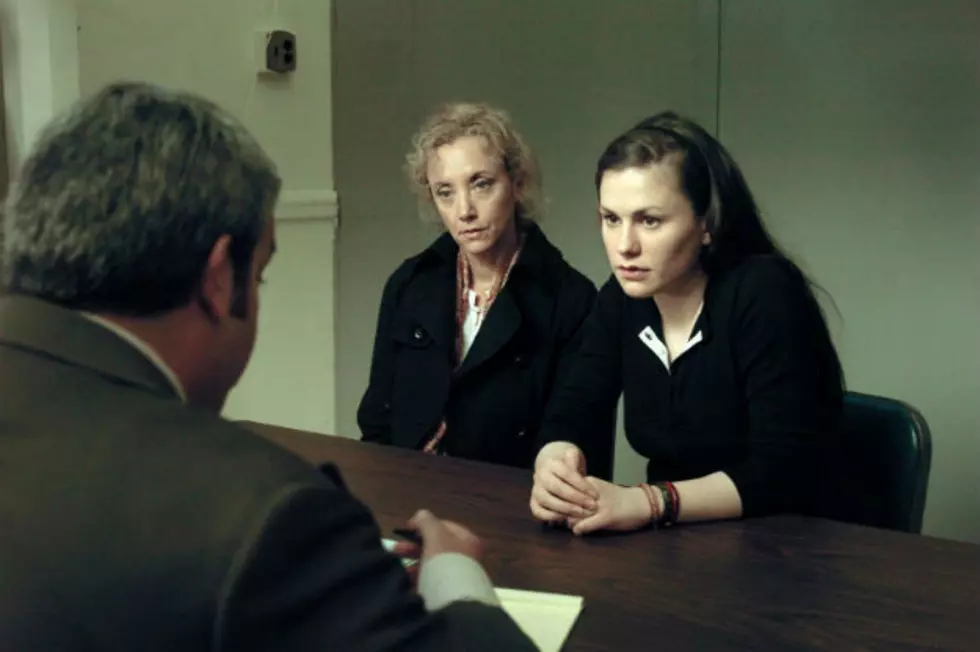
Reel Women: ‘Margaret’
Kenneth Lonergan's 'Margaret' hit DVD and VOD this week -- a film that languished in post-production limbo for six years as Lonergan was unable or unwilling to finish a cut with which he was satisfied. The film is a beautiful, oft-messy character study of a young woman and the effects of tragedy.
High school student Lisa Cohen (Anna Paquin) unwittingly plays a part in a horrific bus accident (one of the most intense scenes set to film in years) that leaves a pedestrian woman dead -- a tragedy that Lisa assimilates into her consciousness as one of those life-defining moments. And perhaps she does this knowingly, after the teacher she has a crush on (Matt Damon) asks her if she's ever had something difficult happen in her life and after overcoming it, she had found she developed new skills from the experiences she encountered along the way. She says no, she hasn't -- and later that day, the accident happens.
Lisa is what one might consider a typical teenager: an insufferable, stubborn know-it-all with a flare for the melodramatic. Initially she lies on her police report, saying that the traffic light was green and the dead woman had walked against the light -- a genuine accident. Later she decides to do what's right and tell the police that the light was red and the bus driver (Mark Ruffalo) was distracted. Lisa does all of this without implicating herself in the accident. She admits fault to the bus driver when she confronts him at his house, but she's careful not to admit fault to anyone in any way that might make her feel worse or punish her for what she's done. And like most teenagers, Lisa is manipulative and pathological. With every person she knows, she shows a different slice of herself. The same components are used in each version of herself, but the parts are rearranged and some cleverly obscured.
Lisa doesn't understand -- because she can't possibly understand -- that the tragedy she has involved herself in and the crusade to get the bus driver fired for his fault in the accident are little more than Lisa trying to make herself important amid everyone else's grieving. This isn't to say that Lisa isn't justifiably dealing with strong emotions of her own, but she is processing guilt as grief and, in the way that most teenagers -- and even many people -- do, she is taking a tragedy and internalizing it, searching for her place in it, for some way to make it about herself.
All grief is selfish. When someone we care about dies we are mourning our loss of that person. Our tears are a result of our sadness that this person has left our life. There's nothing particularly wrong with this, and memorials often serve as a way for us to honor the last wishes of the dead so we can pretend that we're really sad for their loss and not our own. What Lisa does in 'Margaret' is different, though. She is taking the genuine grief of other people and making it into her own, using it, in her own words, as her "emotional gymnasium."
When Lisa befriends Emily (a friend of the deceased), we begin to understand the complexity of her character more. Is this a girl who is willfully blind to the drama she is creating, or is she genuinely trying to make things right? Her approach to revealing that the light was red and not green doesn't read as genuine, and instead feels like the meddling of a teenager who just can't let something go. She feels the need to exacerbate the situation, to make everyone understand how she feels under the guise of doing what's right.
Director Kenneth Lonergan uses long, slow shots that border on dizzying to pull back and show us a larger world -- a world in which Lisa is but one of millions, giving us a sense of scale that Lisa cannot comprehend within her own microcosm. Her actress mother (J. Smith-Cameron, Lonergan's wife) stresses over her new play while dating an admiring fan (Jean Reno). Lisa's father stresses over an impending vacation, which is only worsened by his neurotic second wife. Lisa contemplates losing her virginity to the nice boy Darren or the slacker Paul. Life goes on and on, but Lisa will not let this dead woman die.
'Margaret' is more than a slice of life -- it's a huge, glorious chunk of life, a character study that feels full and round. It's about life as a teenager, the relationship between mother and child and the way parents walk on eggshells to connect with their ungrateful offspring. It's about a post-9/11 New York, and the way people are affected by tragedy in different ways. It's about confusing guilt with grief and trying to reconcile the two. It's also about learning the difference between right and wrong, and the way we do what's right, selfishly and always in our best interest.
But 'Margaret' is also an opera, its name taken from a poem read in Lisa's English class, the words of which may or may not affect Lisa -- she's smart for her age, but is she smart enough? She treats people as if they are set dressing in the opera that is her life, as Emily points out to her so perfectly in a third act rage. And you want to believe that Lisa is earnest -- that it's not so much that she's being a typical, willfully ignorant teenager, always doing the wrong thing because she can, but that she genuinely doesn't understand her self-damning behavior and the selfishness of her actions.
Lisa is self-involved, and only as unlikable as the things we dislike about ourselves, desperately using people and exploiting their pain to create her own tragedy -- willfully or ignorantly or both. As Emily points out, we won't know what kind of person Lisa is until we see how she reacts to a dog getting hit by a car some day when she's older. She's still too unformed, her emotions a reflection of what she thinks she should feel based on everyone around her.
More From ScreenCrush









